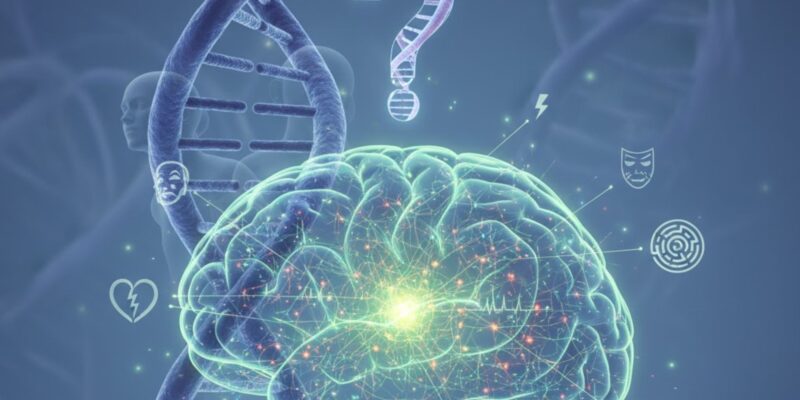
Posted: August 11, 2025
Understanding What Does a Substance Abuse Counselor Do
A substance abuse counselor guides people in recovery, helps manage triggers, and prevents relapse. At Rego Park Counseling, our counselors provide compassionate support to build healthier habits and lasting change.

Posted: August 6, 2025
Are Mental Health Issues Genetic
Genetics can influence the risk of developing conditions like depression, anxiety, or bipolar disorder, but environment and lifestyle play major roles too. At Rego Park Counseling, we help clients understand these factors and build healthier coping strategies for long-term emotional wellness.

Posted: July 28, 2025
Guide to Emotion-Focused Therapy Anxiety Treatment
Emotion-focused therapy helps you understand and process emotions at the root of anxiety. Instead of just managing symptoms, it promotes deep emotional healing, self-compassion, and long-term relief. At Rego Park Counseling, therapists guide clients to reconnect with their emotions and build lasting calm.

Posted: July 28, 2025
What Is Group Counseling? Benefits and How It Works
Group counseling brings together people with shared experiences to heal, grow, and connect under the guidance of a licensed therapist. It helps reduce isolation, build social skills, and provide emotional support in a safe and structured environment.

Posted: July 25, 2025
Trauma-Informed Cognitive Behavioral Therapy for Adults
This therapy helps adults heal from PTSD, anxiety, and the lasting effects of trauma. By combining CBT techniques with a trauma-sensitive approach, it focuses on safety, empowerment, and long-term recovery at a pace that feels right for you.

Posted: July 23, 2025
What Is Trauma-Informed Couples Therapy?
Trauma-informed couples therapy helps partners understand how past experiences affect their relationship. By focusing on safety, empathy, and communication, it supports healing from emotional wounds, rebuilds trust, and strengthens connection.

Posted: July 21, 2025
EMDR Therapy for Anxiety: How It Works and Why It Helps
EMDR therapy helps you process painful memories that fuel anxiety. Through guided eye movements, it targets the root causes of fear and worry, helping you feel calmer and more in control.

Posted: July 18, 2025
Music Therapy for Depression: A Guide to Healing Through Sound
Music therapy for depression uses the emotional power of music to promote healing, self-expression, and mental balance. At Rego Park Counseling, licensed therapists guide clients through activities like listening, songwriting, or playing instruments to help reduce depressive symptoms, ease anxiety, and improve overall well-being in a safe and supportive setting.

Posted: July 16, 2025
Group Therapy for Depression: A Powerful Path to Healing
Group therapy for depression provides a supportive and structured space to heal alongside others who understand your struggles. Led by licensed therapists, these sessions help reduce isolation, build coping skills, and promote lasting recovery through shared connection and guidance.

Posted: July 14, 2025
3 Types of Somatic Therapy: A Complete Guide to Body-Based Healing
Somatic therapy helps release trauma and stress stored in the body by connecting physical sensations with emotional healing. At Rego Park Counseling, therapists use methods like Somatic Experiencing, EMDR, and AEDP to calm the nervous system, ease anxiety, and restore emotional balance.